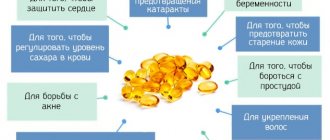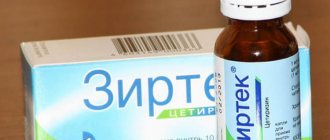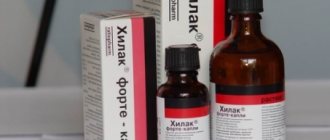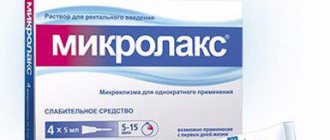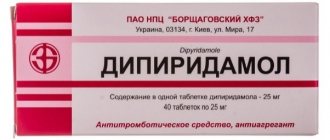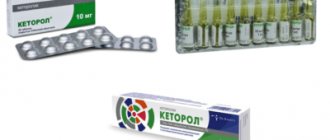During pregnancy, a woman should approach the choice of medications with special care and responsibility.
There are drugs that are strictly contraindicated during pregnancy. Some are allowed for use only in a certain trimester. In any case, your doctor should help you choose the safest and most effective medications. You must be armed with information and prepared for possible problems. For example, no one is immune from a headache, a toothache, or a cold. The main thing is to have a safe and effective drug in your medicine cabinet at home. This is a guarantee that your health and that of your unborn baby will be safe. Remember that the normal course of pregnancy largely depends on how responsible you are about your health! You can’t take risks by choosing medications on your own or on the advice of friends! Such self-medication can be costly. Even if someone was treated with a certain drug without any unpleasant surprises in the form of complications, this does not mean at all that this drug will suit you.
It is important to take medications strictly with your doctor's permission, even if you are not pregnant. Well, during pregnancy there should be no question of choosing medications on your own. Remember, even medications that are familiar to you may be contraindicated during pregnancy. Some of them can provoke serious complications in its course, as well as fetal malformations. Some medications are contraindicated for use in the first trimester, others - in the last. There are a number of medications that can interfere with labor or provoke premature birth. The doctor knows all these nuances. You need to trust him. Our article has been prepared for informational purposes only. And we do not undertake to prescribe a drug in absentia. We will just try to figure out whether Nimesil can be taken by pregnant women and what consequences its use may entail.
Nimesil is an anti-inflammatory non-steroidal drug. It belongs to the group of drugs of the latest generation. Its active ingredient is Nimesulide. This drug is offered in powder form. It needs to be diluted in water, preferably warm. Details about the rules for its dilution, dosage and proper administration can be found in the attached instructions. To make the drug more pleasant to take, it has a pronounced orange flavor. But don't be fooled by its taste and ease of use.
Is it possible to drink Nimesil during pregnancy?
Nimesil is prescribed during pregnancy in different cases: as an antipyretic at elevated temperatures, and also as an anesthetic.
The main indicators for prescribing are sudden, causeless pain, for example, with severe toothache or pain in joints and muscle neurology. But do not forget that the medicine should only be prescribed by a doctor, since Nimesil is not recommended for use while waiting for a refill. The effect of Nimesil on the fetus during pregnancy has not been fully studied by scientists, and the effect can be very different. That is why the drug should be prescribed with extreme caution. And it is best to replace it with safer and proven products with a similar effect.
Nimesil during pregnancy does not eliminate the problem, but only has a relieving effect on pain.
Nuances of side effects from taking Nimesil
The action of Nimesil is not only an analgesic effect. It also has an antipyretic effect. But along with its advantages, this non-steroidal drug also has side effects on the human body. Let's call them:
- headache and dizziness;
- nausea and vomiting occur;
- urge to stomach bleeding;
- failure in the urinary system.
It turns out that almost all the vital systems of the body of a sick patient are slightly affected by nimesulide. That is why you should strictly adhere to the recommended dosage of this drug, which is indicated in the instructions supplied with it.
Advantages and disadvantages of the drug
Like any other drug, Nimisil has its advantages and disadvantages. Use during pregnancy and breastfeeding is not recommended. It is allowed to be taken only in the most extreme cases, when the doctor considers it necessary.
Early influence
During early pregnancy in the 1st-3rd trimester, Nimesil is contraindicated. Taking the powder is not allowed during pregnancy and, in particular, in the early stages. The only exception is a doctor's prescription. The effect of Nimesil in the 1st-3rd trimester is ambiguous.
- The drug quickly fights a decrease in temperature, however, such a rapid decrease in fever using such a drug in the early stages can have a detrimental effect on other organs. Nimesil in the 1st-3rd trimester can harm the growth and development of your baby, as it removes prostaglandin from the body, which is necessary during childbirth.
- This medicine has a negative effect on the liver in the early stages of pregnancy - which the manufacturer warns about in the description for use. Therefore, taking medication while expecting a baby is allowed only after the doctor’s instructions. During pregnancy, it is difficult for the liver, as it bears a very heavy load, and by taking this medicine, you complicate its work.
- The drug blocks cyclooxygenases. Therefore, if the expectant mother has various gastric diseases, for example, asthma, poor blood clotting or problems with the duodenum, taking the medicine is strictly prohibited.
- They contain components that can cause a sharp allergic reaction, for example, when carrying a child and if a woman has hypersensitivity to various medicinal products.
Eliminates pain syndrome
How to take it correctly?
If your doctor has approved the use of this drug during pregnancy, then you should follow the exact dosage when taking it, and in no case exceed the dose. After the doctor prescribes Nimesil for you, he, based on the complexity of the problem, will determine your required dose, as well as the treatment period.
In most cases, two sachets are prescribed in one day for 5-10 days. But in the early stages this period of time is much shorter.
Nimesil should be taken carefully during pregnancy. It should be diluted using the instructions indicated on the package. If you experience any side effects, you should stop taking it immediately. Also, the dose of this medicine is set according to the age and complexity of the situation.
The drug is often prescribed during lactation in order to wean the baby off the breast. Before use, the contents of the package should be diluted in a glass of water at room temperature and mixed thoroughly until a suspension is formed.
Contraindications and side effects
A number of diseases for which you should stop taking the drug:
- if you have serious kidney or liver diseases, the drug will have a detrimental effect - it will negatively affect the condition of the liver.
- if you have problems with your stomach. For gastritis, ulcers, problems with the duodenum;
- You should not take the medicine if you have poor blood clotting;
- without a doctor's prescription in the early stages of pregnancy. The drug is prohibited after 32 weeks, as well as during lactation.
A complete list of the negative effects of the drug during pregnancy has not yet been established. The fact that it has a detrimental effect on the fetus is a fact. And also taking this drug affects the general condition of the uterus. The drug is non-steroidal and is used as an antipyretic, and they are known to close the ductus arteriosus, a situation that leads to fetal death.
To lower the temperature
In addition, the drug can block cyclooxygenase, which is found in various organs; for this reason, it should strictly not be taken for asthma or stomach diseases. There is also a possibility of a serious allergic reaction if you are hypersensitive to some of the components of the medicine.
Reviews of taking this medicine
Irina, Sevastopol, 22 years old.
Review: I took Nimesil for severe joint pain, then I didn’t even suspect that I was pregnant. When it turned out that I had already been carrying the child for three weeks, I didn’t know what to do for a long time. I have known for a long time that the drug is prohibited during pregnancy, so knowing that I was pregnant, I would never have taken it. As a result, I told the doctor, he ordered tests and examination, in the end everything was fine, no negative effects of the drug on the fetus were found.
Natalia. Volgograd, 20 years old.
Review: Before pregnancy, I often saved myself with Nimesil when I had a fever, I like its taste and quick effect, other drugs do not relieve the fever so quickly. When I became pregnant, I didn’t protect myself from a cold - when a fever appeared, I immediately went to my doctor and said that this remedy had always helped me well, but the doctor strictly forbade taking the drug at all.
Tatiana. St. Petersburg, 27 years old.
Review: I didn’t even know that it was prohibited during pregnancy. When I had a severe toothache, nothing helped, I drank Nimesil several times - I only recently found out that it is prohibited when carrying a baby. But, thank God, everything worked out, the pregnancy went well. I gave birth to a healthy baby.
About the author : Borovikova Olga
Is Nimesil possible for pregnant women?
Let's try to find out whether it is possible to drink Nimesil during pregnancy. Despite the fact that this drug is classified as an antipyretic, it should not be used under any circumstances during pregnancy! The drug Nimesil is well known as an effective antipyretic and good analgesic. Pain can occur quite often during pregnancy. No wonder. Indeed, during this difficult, but such an exciting period, a woman’s body experiences serious stress and shock. It is rebuilt at the hormonal level, blood volume increases, metabolic rate changes, and so on. Therefore, during pregnancy, for example, headaches may occur. It is most often associated with an increase or decrease in blood pressure. Or maybe a toothache. Pain in the abdomen or lower back may bother you. The pain should not be endured, especially if it is severe enough. After all, this is stress, both for the expectant mother and for the tiny organism inside her. Ask your doctor at the antenatal clinic in advance which drug can safely relieve you of pain. Let the doctor select several options. You can also ask him if you can drink Nimesil during pregnancy. We are confident that the answer will be negative. After all, the full effect of Nimesil on the body of a pregnant woman has not yet been studied.
So is it possible for pregnant women to drink Nimesil to numb the pain? Are there any contraindications to taking it, what complications can its use cause? Let's look at these issues in more detail. In order to understand whether Nimesil can be taken during pregnancy, it is important to understand how its active substance works. The main property of Nimesil is that it is able to inhibit the synthesis of prostaglandins. Prostaglandins are substances that are involved in the inflammatory process. Consequently, if their production is suppressed, the inflammatory process subsides. This is why Nimesil is quite effective in combating various types of inflammation. Thanks to this, it effectively eliminates pain that arises due to the inflammatory process. This property of this drug is, of course, very useful.
But... Extremely important processes occur in the body of a pregnant woman. And interfering with their flow is very risky. But if the drug Nimesil affects the inflammatory process, then it necessarily affects other important processes that occur in the organs and tissues of the female body. In order to relieve inflammation, Nimesil includes certain mechanisms. It invariably affects not only the woman’s body, but also the fetus’ body. The normal course of processes in the fetus’s body is disrupted, which affects its general condition. But without prostaglandins, normal labor is impossible.
Nimesil is capable of blocking such an important substance as cyclooxegenase (type two). In this case, the following therapeutic effects of the drug develop:
- antipyretic;
- anesthetic;
- anti-inflammatory.
Despite the fact that these are very useful properties of the drug, taking it during pregnancy is strictly contraindicated!
Let's look at how this medicine works. The drug works quite quickly. Its highest concentration in the blood is observed after 2 hours after taking it. Then it begins to be metabolized in the liver, and then excreted into the intestines with the help of bile. Therefore, if the patient has problems with liver function, the drug may accumulate in excess quantities in the body. At the same time, the time during which it is withdrawn increases. This is why a doctor must prescribe the drug. But during pregnancy, the liver, kidneys and other organs are already subject to the maximum load, therefore additional load from Nimesil is contraindicated. It can cause serious disruptions in the functioning of all organs and systems. There is no point in risking your health, especially during such a crucial period of your life! There are many products whose action is similar to that of Nimesil, but at the same time they are safer.
It has been proven that Nimesil has a serious effect on the functions of the liver and kidneys. Like all non-steroidal anti-inflammatory and analgesic drugs, Nimesil can reduce these functions. But during pregnancy, the load on the liver and kidneys already increases. Now they must remove waste products not only from the mother, but also from the fetus. We lead to the conclusion that taking Nimesil during pregnancy is not only undesirable, but even dangerous! In this situation, it is better to abandon this remedy. By the way, the manufacturer, in its instructions for this drug, quite honestly stated that it is not recommended to use Nimesil during pregnancy.
The drug belongs to the NSAID class of drugs. These are drugs that can inhibit, that is, slow down, the synthesis of prostaglandins. Nimesil can not only affect the course of pregnancy, but have a negative effect. It is also believed to negatively affect the formation and development of the fetus. Due to its use, the ductus arteriosus may close prematurely. This can provoke pulmonary hypertension, disrupting the normal functioning of the kidneys. Possible development of renal failure. Also, after taking it, the risk of all kinds of bleeding increases, the contractility of the uterus decreases, and swelling of various localizations may occur. That is why Nimesil is contraindicated both during pregnancy and during pregnancy.
In order to minimize such side effects, it is recommended to take Nimesil (not during pregnancy and lactation) in small doses and for a short period of time. It is worth noting that in almost no country Nimesil is no longer used as an antipyretic. It is worth starting the course of treatment with a minimum dose. If any undesirable reactions occur, the drug should be discontinued.
"Nimesil" during pregnancy: instructions for use
If a woman is expecting a baby, she should not take any medications, because this can cause negative consequences. However, the pregnancy period is quite long, and it is often impossible to avoid taking medications, for example, if the expectant mother has strained her back, contracted an acute respiratory infection, or has a toothache. Usually in such cases one of the painkillers is prescribed, for example, Nimesil. However, during pregnancy its use is limited, and doctors consider this medicine unsafe for pregnant women and the developing fetus.
Compatibility of the drug with other drugs
Before using Nimesil in combination with other drugs, you should consult your doctor. With such interaction, unpredictable consequences often arise that can harm the body as a whole.
Nimesil powder can be combined:
- With glucocorticosteroids - increase the likelihood of stomach ulcers and provoke gastric and intestinal bleeding.
- With antiplatelet drugs - increase the risk of bleeding from the stomach or intestines.
- With anticoagulants – increase their effectiveness. If there is a need for pain relief, then after taking Nimesil you need to monitor blood clotting indicators.
- With diuretics - reduce their effect.
- With antihypertensive drugs – reduce their effectiveness.
Strict control over the body's condition is required if Nimesil powder is taken in combination with lithium preparations. They are prescribed for the treatment of various psychotropic disorders. Nimesil slows down the removal of lithium from the body. As its level in the blood increases, toxicity increases, which causes dangerous consequences. The toxicity of Methotrexate, which is an antitumor agent, also increases.
Nimesil can be taken together with Digoxin, Theophylline. In addition, there are drugs that require a break of 24 hours between taking them and using Nimesil.
Important things to consider:
- The powder is not used together with other NSAIDs.
- Due to the ability to thin the blood, treatment of the patient with any coagulants should be considered. Nimesil can enhance their effect and provoke bleeding. If the doctor decides to take these drugs together, he should carefully monitor blood clotting parameters.
- Therapy with glucocorticosteroids and this drug can provoke internal bleeding and the development of gastrointestinal ulcers.
- Under the influence of Nimesil, antibiotics become more nephrotoxic, which is of great importance for those suffering from kidney diseases.
- It should be remembered that when taking this painkiller and antihypertensive drugs simultaneously, the effect of the latter is reduced. It has a similar effect on diuretics.
Features of the drug
Nimesil is known as an effective medicine for pain, inflammation and fever. All these therapeutic effects are caused by its main ingredient, which is called nimesulide. The drug is presented in granules, packaged in portioned sachets of 2 grams. One such sachet contains 100 mg of nimesulide, to which maltodextrin, orange flavor, citric acid, ketomacrogol 1000 and sucrose have been added. Thanks to such excipients, the granules are dense, light yellow in color and have a pleasant orange smell, and also quickly dissolve in water to form a sweet orange suspension.
"Nimesil" is sold in boxes containing 30, 15 or 9 sachets, but if desired, it can also be purchased individually. To do this, you need to show a prescription from a doctor and pay an average of 240-260 rubles for a pack of 9 sachets.
Store the medication at home, according to the instructions, in a dry place at a temperature of +15 to +25 degrees, making sure that the drug is not found by small children during storage. If the granules are sealed, their shelf life is 2 years, and it is not recommended to store the drug diluted with water.
How to dilute the powder?
A suspension is pre-prepared for use. The granules are poured into a glass and diluted in approximately 100 ml of warm water. It is important to thoroughly mix the solution until a homogeneous consistency is obtained. The suspension cannot be stored, so it must be taken immediately.
For adults, the drug should be taken after meals in 2 divided doses (morning and evening). To prepare the suspension, you need to take a glass with 100 ml of water and dilute a bag of powder with it.
To better dissolve the granules, it is recommended to use a teaspoon. The water should be boiled and warm, this will help dissolve Nimesil powder faster.
The diluted medicine should not be stored until the next dose, as the properties of the active substance are lost.
To prepare the suspension, you need to take a glass with 100 ml of water and dilute a bag of powder with it.
Action and indications
The active substance "Nimesil" has the ability to block type 2 cyclooxygenase. This enzyme regulates the synthesis of pain mediators, so its inhibition will result in the elimination of pain. This indication is the main reason for using Nimesil.
The drug is prescribed for acute toothache or headache, as well as for pain in the joints, back or muscles. This medicine helps with dislocations, sprains and other injuries. It is used if the patient has inflamed ligaments, developed arthritis, bursitis or another disease of the musculoskeletal system, since Nimesil has a pronounced anti-inflammatory effect.
This medication also has the ability to lower body temperature, so it can be taken for fever, but usually such use is resorted to in the absence of other antipyretic drugs at hand, which are considered safer and more effective.
Granules taken orally and diluted with water are quickly absorbed, ensuring the maximum concentration of the active substance in the bloodstream after 2-3 hours. The drug is metabolized in liver cells, so any problems with the functioning of this organ can affect the action of Nimesil and increase the risk of side effects. With bile, the modified medicine enters the intestines and then leaves the body with feces, however, approximately 50% of the active compound of the granules is excreted in the urine, that is, with kidney disease, this process may be disrupted, which also increases the likelihood of harmful effects of the drug .
Reviews from doctors and patients
Doctors often use Nimesil in their practice, especially for diseases of the joints and back; they positively characterize the drug and recommend it to their patients as a well-studied, safe, easy-to-use and, most importantly, effective remedy. As noted by Professor V.I., who worked as an orthopedist for many years.
Dikul, Nimesil is one of the best drugs for achieving quick, stable results. It acts directly on the cause, relieves pain within a few minutes, and within a week of regular use the pain completely disappears. It is worth noting Nimesil’s ability to negatively influence the structure of tissues and liver function, which led to its ban in a number of countries.
I have a positive attitude towards Nimesil. In my opinion, among non-steroidal drugs, patients should be prescribed this one (of course, if the medical history allows it). The drug eliminates pain of varying intensity within an hour, while patients subsequently do not complain of abdominal pain or acne. Moreover, the suspension is very well accepted by the body.
Konstantin, doctor
For algodismenorrhea and female diseases, Nimesil does not have a special analgesic effect (although it should, according to the instructions). I say this not only from my own experience, but also based on the feedback from my patients. But as an antipyretic, yes - in this case, the drug helps relieve pain and reduce temperature very well.
Anastasia, doctor
While working out in the gym, I suffered a severe dislocation of my shoulder. The pain was such that I couldn’t move my arm even a millimeter. The doctor, in addition to the main treatment, advised taking Nimesil suspension to alleviate the condition. As a result, at first I was able to sleep normally, tossing and turning quietly without pain, and after a few days the pain in my shoulder practically disappeared.
Peter, patient
I suffer from knee pain. I consulted with a doctor, he recommended Nise or Nimesil (which is the same thing). In general, I can’t say that my knee has stopped tormenting me, but the pain has really decreased. I’ll continue to drink until I’m particularly excited.
Feodosya, patient
Daniil, 36 years old: “I took Nimesil as prescribed by a doctor, I consider the drug a remedy for inflammation, fever and pain. The disadvantage of the powder is that the active substance has a toxic effect. I experienced a rare side effect from taking Nimesil - hepatitis. Since then I have not used this product.”
Elena, 25 years old: “Nimesil helped me quickly eliminate pain, it’s convenient to take, and it tastes good - these are the advantages of the drug. The disadvantages of the drug are its ability to influence the functioning of the central nervous system, I had a headache and felt bad. The medicine also gave me a stomach ache.”
Tatyana, 45 years old: “The doctor advised my mother, she has arthrosis and severe joint pain. It relieves pain well, but at this age the doses are very limited.”
Strange but true. If I had read on your website that you shouldn’t drink it if you have high blood pressure and ARVI, I would never drink it. I drank yesterday because I didn’t know. I feel good today. But I continue to be treated for another day just in case.
Goryainova Tatyana Mikhailovna: When I had laryngitis, I drank it for severe pain in the throat. It relieves pain well and also relieves fever, but I won’t take it anymore. Blisters appeared on the body and itched terribly. At first my face was covered in blisters, and after half an hour the rest was covered. Apparently I'm allergic to it.
Julia: Good afternoon. Nimesil is a panacea for me, random people advised me, when I had a problem with my legs (I couldn’t walk, I couldn’t step, there was a sharp pain), I bought a couple of sachets and the pain went away. After that, I already ordered a box from this pharmacy, there were 30 pieces. Now, if there are problems with the joints or a very bad headache, then I take nimesil, rarely, as an emergency aid.
Galina: Good afternoon! Temperature is 39.3, paracetamol is not helping. I ran to the pharmacy... I bought the drug for my husband, I hadn’t taken it before, they recommended it to me at the pharmacy, after using the drug, my husband developed a rash on his hands and feet, now we can’t cure the rash... he had a fever, and now the consequences are a rash, we run to hospitals and buy expensive ointments for itching.
Nimesil is an affordable and effective pain reliever. It helps to get rid of pain syndromes, relieve fever and inflammation. Due to contraindications and side effects that are possible when taking the medicine, self-medication is unacceptable.
Can it be used during pregnancy?
The instructions for the granules indicate that Nimesil should not be used either during pregnancy or during breastfeeding . The use of such a remedy is not recommended when planning pregnancy, in order to avoid harmful effects on the fetus in the early stages, when it is most dangerous and can lead to miscarriage. If pregnancy is possible, you should avoid using Nimesil and resort to safer analogues.
In very rare cases, the drug can be used once at a later stage, if there are no other painkillers at hand. However, such use of Nimesil must be supervised by a doctor, and exceeding the dose prescribed by a specialist is unacceptable. It is prohibited to take the medicine on your own at any stage of gestation.
Such restrictions are associated with a high risk of nimesulide affecting both the development of the fetus and the condition of the uterus.
This drug is known to:
- influence blood clotting;
- cause an allergic reaction;
- reduce body temperature too sharply;
- worsen liver function;
- affect the central nervous system, causing nervousness, headaches or dizziness;
- provoke heart defects in the fetus;
- cause swelling in a woman;
- cause anemia;
- increase blood pressure;
- affect the contractility of the uterus;
- provoke diarrhea, vomiting or other dyspeptic symptoms;
- reduce potassium levels in the blood;
- increase the risk of developing gestosis.
Use of nimesil in early pregnancy
anonymousGood afternoon! From February 26 to March 3, due to inflammation in the back, I took nimesil in the first three days of illness, two sachets, the remaining three days - one sachet. On the 28th, my abscess was cut out and, in addition to nimesil, I was prescribed the antibiotic amoxiclav 10 tablets (1 year, 5 days x 2 tablets). At the beginning of February, I realized that I had a delay. The first day of my last period was January 28th. I also expected my next period at the end of February. On March 5 I took a pregnancy test - it showed one line. I took the next test on the 11th and it turned out to be positive. On March 12, I went for a pelvic ultrasound. According to the ultrasound results, the gestational sac is 8mm, which, according to the doctor, corresponds to three weeks of pregnancy. First pregnancy. The doctor scheduled the next ultrasound for March 21st to determine the development of the fetus. Additionally, she advised us to consider the option of medical termination of pregnancy in connection with taking nimesil. The instructions for nimesil clearly state that the use of this drug during pregnancy is contraindicated. In this regard, the question arises about what effect nimesil can have on the health of the unborn child? Maybe it’s not worth risking the child’s health and having a medical abortion? Can termination affect a future pregnancy planned for the end of 2014 - beginning of 2015? I would like to hear the opinion of experienced doctors on this issue and assess the risks of both options. Thank you in advance! Answers Gamit Alena Anatolyevna Obstetrician-gynecologist Hello. Indeed, taking nimesil is contraindicated during pregnancy. You need to undergo genetic counseling. Most likely, there will be no negative effect on the fetus, due to the fact that there is no connection (general blood flow) with the fetus at this stage. Be sure to perform an ultrasound to determine the fetal heartbeat at a period of 7-8 weeks, and at a period of 11-13 weeks, prenatal screening is performed to determine genetic abnormalities in the fetus; if everything is normal according to the screening, then there is no need to worry. Then, at 16-18 weeks, a second prenatal screening is performed; you will definitely need to do it. Only you make the decision. Evaluate the consultant’s answer:
Should a man be upskirted? Is this really the key to a successful marriage? 500We are currently going through a difficult period in our relationship with my husband! and I dig into myself, into him, into us. This really torments me. Friends tell me that lately I don’t look like myself. I became somewhat overwhelmed, downtrodden, and tired. I was very hurt by the words of the former “you switched off” earlier... To the places of the First World War and not only (GHENT-IPR-DOORN)427Good day everyone! Today I propose a sad but interesting route through Belgium and partly the Netherlands. We will go from north to south - from Holland to Ghent. From there to the city of Ypres, notorious in the First World War, but no less beautiful for that. And to bring this part of the journey to its logical conclusion... modern education or what did I not understand? 345 We once talked with the teacher (online conversation). and I read this monologue from her. my eldest child is going to school this year, I’m shocked if everything is really like that. is that so? or is this just another fantasy? (teacher’s spelling and punctuation are observed) “Discover the new standards of the Federal State Educational Standards LLC, expand your knowledge. Before …
Contraindications
“Nimesil” should not be taken not only when carrying a baby and breastfeeding, but also in many other cases. As mentioned above, the drug is not recommended for liver and kidney diseases, because these organs are involved in its metabolism and excretion.
In addition, granules are prohibited when:
- hypersensitivity to any of their ingredients;
- stomach ulcer;
- inflammation of the intestines;
- allergies to acetylsalicylic acid;
- bronchial asthma;
- bleeding or tendency to it;
- taking other drugs toxic to the liver and kidneys.
The drug should also not be used for high blood pressure, blood flow disorders in peripheral vessels, diabetes mellitus and many other health problems. In addition, it is incompatible with angioplatelet agents, glucocorticoids and some other drugs. For this reason, its use is avoided not only during pregnancy.
It is strictly forbidden to give Nimesil to children under 12 years of age.
Use as prescribed by a doctor
In what cases are doctors allowed to use Nimesil? This:
- diseases associated with problems in the musculoskeletal system (damage to tendons and ligaments, inflammatory diseases of the joints (arthritis and arthrosis);
- myalgia (muscle pain) and neuralgia;
- very painful menstruation;
- post-traumatic recovery period.
“Nimesil” is quite effective for the above diseases and symptoms, especially since it generally has a gentle effect on the gastric mucosa. However, it is not recommended for:
- active phase of peptic ulcer and diseases of the duodenum;
- serious disorders of the liver and kidneys;
- problems and disorders of blood clotting;
- period of pregnancy and breastfeeding.
Therefore, expectant mothers should take into account all these nuances and not experiment with their own and their baby’s health. When carrying a baby, you need to adhere to certain rules:
- If there is pain, but it can be tolerated, then it is better not to resort to taking painkillers.
- If the pain begins to bother you frequently, then you should not get carried away with painkillers, but rather consult a doctor.
- During pregnancy (especially in the early stages), it is strongly recommended not to take any medications. The exception is homeopathic remedies.
- When buying a medicine at a pharmacy, first of all, you need to pay attention to the instructions and study it carefully. If the instructions are written in a foreign language (without translation) or are not there at all, then this is a direct indication that the drug may not be approved for sale, so you should not buy it.
- After carefully reading the annotation for the medicine, weigh the pros and cons. Think carefully before taking it and whether you should take it at all. After all, your health and the health of your baby is much more important.
What to replace it with?
While waiting for a baby, situations often arise in which painkillers or antipyretics are required. For such problems, instead of Nimesil, doctors recommend paracetamol to expectant mothers. They can reduce pain and lower body temperature, are available in several forms and are sold without a prescription. Such medications, including Panadol, Paracetamol and Efferalgan, are allowed at any stage of pregnancy, but must be prescribed by a doctor, and in the 1st trimester they should be avoided if possible so as not to affect the development of the baby’s important organs.
Ibuprofen-based medications also have an analgesic effect. They are often prescribed to pregnant women for headaches or ARVI, as well as for injuries and various inflammatory diseases. Such drugs are safe for the baby in the tummy, but they should not be taken in the later stages, since ibuprofen can affect the course of labor and delay the onset of labor.
If pain occurs, pregnant women should follow these medical recommendations:
- if the pain is tolerable, it is better to refuse any painkiller;
- if the pain recurs, consult a doctor;
- if your pregnancy is short, you cannot take painkillers without a prescription from a specialist;
- The dosage of any pain medications should be checked with a doctor;
- It is unacceptable to take analgesics prophylactically during pregnancy (if there is no pain, you should not take the drug);
- Having bought a medicine at a pharmacy, you need to carefully read the instructions;
- if the instructions for the drug are in a foreign language, you should not use the medication (it may not be registered in our country);
- Before taking tablets, powder, suspensions and other types of medications, you should try to get rid of pain using non-drug methods.
"Nimesil" is an effective medicine that copes well with pain and inflammation, which is confirmed by numerous reviews from both patients and doctors. However, the risk of side effects of such a drug is very high, and during pregnancy this drug is dangerous not only for the expectant mother, but also for the baby developing in her womb. For this reason, Nimesil is not recommended for use during pregnancy. If a woman needs a painkiller, it is better to consult a doctor to choose another medicine that will not harm the fetus and the patient’s body.
Taking Nimesil without consulting a specialist during pregnancy is strictly prohibited.
Reviews of the doctor about the drug Nimesil, see the following video.
What is the danger
Doctors include the safest non-steroidal anti-inflammatory drugs in treatment regimens for hemorrhoids, which often worsen during pregnancy. They have proven themselves in the treatment of inflammation of muscles and nerves as a result of hypothermia or injury. Drugs in this group help relieve pain after fractures, dislocations, subluxations, ruptures of ligaments and tendons. Nonsteroidal inflammatory drugs are used during pregnancy and in the treatment of respiratory infections not complicated by a febrile state. But not Nimesil.
Diclofenac injections during pregnancy
It's all about the mechanism of its action:
- the active ingredient blocks special enzymes - cyclooxygenases;
- their inhibition causes a decrease in the production of their arachidonic acids and prostaglandins;
- The less these mediators are in the systemic bloodstream, the weaker the pain, the less pronounced the swelling, and the temperature does not exceed normal values.
Such a complex effect is useful only before conception. It is dangerous for pregnant women to take Nimesil, since a certain amount of prostaglandins is naturally produced in the body. Their production increases with inflammation, mild pain, and a slight rise in temperature. That is, with symptoms that are natural protective reactions of the body. Prostaglandins are mediators that control the course of biochemical processes. If they are deficient, the natural balance in the body will be disrupted, which can become an impetus for abnormal intrauterine development of the fetus.
The active component of Nimesil forms high-molecular complexes with plasma proteins. Only a small part of it remains to circulate in the systemic circulation unchanged. The active substance easily overcomes physiological barriers (including placental barriers) located between blood and tissue fluid.
What can happen to the fetus if a woman often drinks Nimesil:
- the cardiovascular system develops with disturbances;
- congenital pathologies of the urinary system organs, including the kidneys, occur;
- the functional activity of the liver decreases;
- the proper development of the respiratory system is inhibited;
- the likelihood of closure of the ductus arteriosus, an accessory vessel connecting the aorta and pulmonary artery, increases.
Sometimes the use of the drug leads to a decrease in oxygen content in the bloodstream. Before conception, such a short-term condition did not cause any significant harm to the woman’s health. But during pregnancy, hypoxia is very dangerous for the fetus and can provoke premature birth. By taking Nimesil for several months or even weeks, a woman risks not only her health, but also the life of her child. After all, many anomalies of intrauterine development are incompatible with it.
Do not worry about taking Nimesil once without a doctor’s prescription - it only causes harm if used frequently
Important! If a pregnant woman has unknowingly already started taking Nimesil, then do not panic. After 1-2 doses of the drug, its concentration in the gastrointestinal tract is minimal and is not capable of causing significant harm to the health of the pregnant child.
Is it possible to use Nimesil during pregnancy?
Pregnancy, according to the instructions for use, is included in the list of contraindications for taking Nimesil. Despite this, in some situations a specialist can still prescribe treatment with this drug. Inflammation and pain cannot be ignored during this difficult and crucial period. This not only poses a danger to the body of the mother and fetus, but also makes the expectant mother nervous, which is extremely undesirable during the period of bearing a child.
Early use
Some women mistakenly believe that if they take the drug in a reduced dosage in the first trimester, this will protect the fetus from the harmful effects of the active component. It is important to understand that this does not reduce the danger for the child, and the dosage will be insufficient to provide the desired therapeutic effect.
In the early stages of pregnancy, all the internal organs and systems of the baby are formed. This period is considered the most important and any violations can provoke serious complications, including miscarriage. Now the fetus is not protected by the placenta, so all substances that enter the woman’s body have a direct effect on the baby. If during this period even a small dose of the drug in question gets into the blood, it can negatively affect the formation of a new life. In this case, the child may develop severe deformities and pathologies incompatible with life.
In the first trimester of pregnancy, the use of Nimesil is strictly prohibited. If pain and inflammation develop, the patient should use drugs that are safe during this period.
Let's sum it up
So, what to do with Nimesil during pregnancy? If you are concerned about the health of yourself and your unborn child, then ask your doctor to choose a safer remedy for you. Do not use Nimesil at your own discretion! During pregnancy and lactation it is strictly contraindicated! Select medications during this period with special care. Remember that even familiar folk remedies and herbal infusions can cause enormous harm during pregnancy! Therefore, you should not take them lightly. You should not abuse medications, even if it is an herbal or homeopathic remedy. Be smart so as not to risk the health of your baby's future!
During pregnancy, a woman may face health problems. The main thing is not to panic. It is important to be able to get the necessary medical advice. Also remember a few simple recommendations on how to behave correctly in case of certain health problems.
- If you are able to tolerate the pain that arises and it does not knock you out of your usual rut, then it is better not to rush to take medications. Be sure to contact your doctor as soon as possible and get a full consultation. Tell us in detail about when the pain began and where it is localized.
- Do not take risks and do not resort to self-medication.
- For severe pain, take only medications that have been pre-approved by your doctor. Do not hesitate to ask him in detail which medicine is best to take for which pain.
- Be sure to avoid Nimesil during pregnancy. It is contraindicated in both early and late stages. Nimesil during early pregnancy can have an extremely negative effect on the formation of the fetus.
- In the early stages of pregnancy, drug treatment is extremely undesirable. In serious cases, a doctor's consultation is required. The drugs are selected very carefully. At the beginning of pregnancy, it is better to opt for folk remedies. But you also need to be careful with them, as some herbs can cause miscarriage or premature birth. Always consult your doctor about new products and medications. Sometimes homeopathic remedies help. Always read the instructions carefully. Especially the section where it is indicated whether the drug is suitable for use during pregnancy and lactation.
- If the drug does not come with instructions or if the instructions are in a foreign language, do not take this drug. You should also discard the medicine if its instructions do not contain a section on its use during pregnancy and lactation. Such drugs should cause mistrust. You must remember that there are a number of drugs that are prohibited for use in our country.
- Always read the instructions very carefully. It should indicate all the side effects of the drug, its dosage, use during pregnancy, etc.
So, we tried to quite fully and reasonably explain the question of whether Nimesil can be taken during pregnancy. Having studied the recommendations of gynecologists, we found out that the drug Nimesil is strictly contraindicated during pregnancy. It is also not recommended for use for a number of diseases. Therefore, only a doctor has the right to prescribe it. At the same time, the benefits it will bring must be undeniable. Doctors tend to prescribe Nimesil only on the basis of detailed examinations and tests. Do not think that one dose of medication will not cause harm. Be very responsible, especially while pregnant!
Indications for use
An anti-inflammatory non-steroidal drug is prescribed to patients for various pathologies accompanied by an inflammatory process in the body and pain. The medication quickly and effectively fights pain, lowers body temperature, reduces swelling and inflammation.
Indications for use include the following pathologies:
- Menstrual pain in women.
- Various diseases of the musculoskeletal system, accompanied by pain and inflammation, including injuries and dislocations.
- Conditions characterized by damage to the patient's muscle fiber, sprain, ligament rupture.
- Headache of moderate or severe nature.
- For toothache, including after surgical procedures in the oral cavity.
- Pain, the origin of which remains unclear.
The therapeutic effect after using the drug in question can last up to 12 hours. Despite this, it cannot be treated as monotherapy. Nimesil only combats negative symptoms, but does not affect the cause of the patient’s discomfort.
Indications and possible contraindications
So, we found out that Nimesil should be prescribed exclusively by a doctor. It doesn't matter if you're pregnant. It is important to monitor your health at any time in your life. Therefore, it is not worth taking risks. There is a whole list of diseases for which the use of Nimesil is indicated:
- Diseases of the musculoskeletal system (arthritis, arthrosis, tendon damage);
- Neuralgia;
- Myalgia;
- Pain during menstruation;
- Recovery period after injuries.
In such cases, Nimesil is very effective. In addition, it has an undeniable advantage - it has virtually no effect on the condition of the gastric mucosa.
Despite this, Nimesil should not be used in the following cases:
- For severe liver and kidney diseases;
- With exacerbation of stomach and duodenal ulcers;
- In case of a blood clotting disorder;
- During pregnancy and lactation.
So, basically, Nimesil is prescribed as an analgesic and antipyretic. At the same time, it effectively fights pain of various origins and localization. At elevated temperatures, it reduces it quite effectively and quickly. The drug also relieves toothache, joint and muscle pain of neurological origin.
At the same time, Nimesil should not be taken during pregnancy. Its effect on the fetus has not been studied at all and it is possible that this effect is quite strong and harmful. There are a number of drugs that do not affect the fetus and this has been proven. At the same time, they act no worse than Nimesil.
The downside of the drug is that it only muffles the pain without affecting the cause of its occurrence at all. Its effect is purely symptomatic. When pain occurs, it is important to find out its cause, because painkillers will not affect the cause of the pain.
Contraindications
Nimesil has a number of prohibitions that must be taken into account when prescribing NSAIDs. The active components of the drug, after entering the body, quickly spread through the gastrointestinal tract and penetrate the blood. The active substances of the medicine easily overcome the placental protection, that is, they enter the child’s body. It is important to take into account the negative effects of the medication on the body not only during pregnancy, but also when planning a baby.
- The patient's age is under 12 years.
- Hypersensitivity to active and excipients of NSAIDs.
- Blood clotting disorder.
- Internal bleeding in a patient.
- Pathologies of the digestive system, accompanied by an inflammatory process.
- Increased body temperature, which is caused by infectious or colds.
- Acute renal or liver failure.
- Bronchial asthma in a patient.
- Pathologies of the heart and blood vessels.
The simultaneous use of Nimesil with other non-steroidal anti-inflammatory drugs is prohibited due to the risk of overdose and other side effects.
Pregnancy is a direct contraindication to the use of the medicine in question. NSAIDs can cause dangerous complications in a woman, such as premature birth, bleeding, deterioration of the kidneys and liver, as well as various pathologies in the fetus.
Main contraindications
Nimesil should not be used in the following cases:
- A history of allergic reactions (rhinitis, bronchospasm, urticaria) to the use of acetylsalicylic acid and drugs related to non-steroidal anti-inflammatory drugs.
- Fever during infectious and inflammatory processes.
- Simultaneous use with other hepatotoxic drugs, for example, paracetamol and other painkillers, as well as non-steroidal anti-inflammatory drugs.
- A history of liver damage while using nimesulide.
- Relief of pain associated with exacerbation of Crohn's disease and ulcerative colitis.
- Recovery after coronary artery bypass surgery.
- Exacerbation of gastric or duodenal ulcers, bleeding in any organ of the gastrointestinal tract, a history of ulcers.
- The presence of bleeding or diseases that are accompanied by bleeding.
- Severe cardiac, renal or liver failure.
- Alcoholism, drug addiction.
- Age under 12 years.
- Serious disorders of the blood clotting process.
- Pregnancy and lactation period.
Nimesil should be used with caution in the presence of the following pathologies:
- Severe arterial hypertension.
- Diabetes mellitus type 2.
- Dyslipidemia or hyperlipidemia.
- Smoking.
- Cardiac ischemia.
- An infection caused by Helicobacter pylori.
- Elderly age.
- Cerebrovascular pathologies.
- Severe somatic pathologies.
- Simultaneous use with anticoagulants, antiplatelet agents, glucocorticosteroids, selective reuptake inhibitors.
The decision on the need to use nimesil should be made exclusively by a specialist who is able to assess the risks and benefits of the drug in your particular case.
What negative effects can the drug cause in a child?
It is forbidden to drink Nimesil powder during pregnancy. What is this connected with? The fact is that the action of the active components of the drug is aimed at reducing the synthesis of prostaglandins in the body. These substances are synthesized in the organs and tissues of the human body. When their production is artificially suppressed, various functional malfunctions can develop in the organs of the fetus and woman.
The placental barrier cannot protect the baby from this negative influence, since the active substances of NSAIDs easily penetrate the placenta even in the second and third trimester of pregnancy. In this case, the baby may develop the following negative effects:
- Pathologies of the development of the heart and blood vessels, various heart defects.
- Disturbances in the development of the kidneys and the entire urinary system.
- Liver dysfunction.
- Closure of the ductus Botallova in a child before birth.
- The development of various malformations in the child, which can provoke premature birth and death of the fetus in the mother’s womb.
Various adverse reactions in women that may occur during the use of Nimesil are also considered dangerous for the baby. If the mother is ill, the fetus may suffer from hypoxia. This will lead to the development of a deficiency of oxygen and other important nutrients.
Read more about fetal hypoxia during pregnancy and the danger of this condition for the baby.
How does Nimesil work?
The development and maintenance of the inflammatory process occurs as a result of a whole complex of reactions. The key mechanism of action of Nimesil is the suppression of the activity of the COX-2 enzyme, which is induced in large quantities by cytokines in response to tissue damage and the formation of inflammatory stimuli. This leads to a decrease in the synthesis of prostaglandins, which trigger a cascade of inflammatory reactions, manifested in the form of pain symptoms.
The main advantage of the drug is its selectivity of inhibition. It consists in a minimal effect on the structurally related cyclooxygenase COX-1, which is constantly present in a certain amount in many organs and tissues of a healthy person. The COX-1 enzyme is necessary for the regulation of their normal functioning; its inhibition is fraught with various undesirable phenomena.
The medicinal properties of the drug also determine additional mechanisms of influence, such as Nimesil:
- reduces the production in mast cells of a highly active mediator of inflammatory and allergic reactions, histamine, responsible for the formation and maintenance of painful conditions, thereby preventing spasm of the bronchial muscles, stagnation and thickening of blood, swelling of surrounding tissues, reduces the permeability of capillary walls;
- influences the synthesis of thromboxanes and their precursors, endoperoxides, which stimulate platelet aggregation, preventing the formation of blood clots;
- prevents the release of lysosomal enzymes into the extracellular environment, phosphorylates glucocorticoid receptors, reducing the intensity of the inflammatory process;
- reduces the activity of serotonin and bradykinin, reducing the permeability of the vascular wall;
- inhibits reactions occurring under the influence of free oxygen radicals, prevents the formation of toxic breakdown products that damage cell membranes in the pathological focus;
- inhibits the production of extracellular protein by monocytes and macrophages, tumor necrosis factor, which in excess amounts causes disruption of blood flow through the vessels and triggers the process of necrosis in the body’s cells;
- suppresses the production of the protein urokinase and the mediator of the acute phase of inflammation, interleukin, whose excess production damages tissue, thereby preventing the destruction of cartilage;
- prevents the destruction by matrix metalloproteinases of proteins that are the basis of connective tissue - collagen and proteoglycans.
According to the instructions, the therapeutic effect develops within 30-40 minutes from the moment of using Nimesil and lasts for more than 6-7 hours. Pain relief is felt within 15-20 minutes. The drug is well absorbed from the gastrointestinal tract, peak concentration is reached after 2-3 hours. The biologically active substance does not accumulate with long-term use and is excreted completely, mainly in the form of metabolites in urine and feces. The half-life of metabolic products is 3-6 hours.
Nimesil for an expectant mother: when you need a forbidden drug
Pregnancy without ailments rarely occurs; Every now and then women have to look for ways to relieve pain of various natures - so as not to harm the fetus. When lotions and decoctions do not help, it is the turn of medications. Among the effective analgesics, Nimesil stands out; Some women were already familiar with the drug before pregnancy, so they see nothing wrong with using a proven remedy while pregnant. Let's take a closer look at Nimesil - primarily from the point of view of safety for pregnant women.
What does Nimesil consist of and how does it work in the body?
The drug belongs to non-steroidal anti-inflammatory drugs from the sulfonamide class; It is a white or yellowish granular powder with an orange aroma that dissolves quickly in water.
Nimesil is a powder that is easily soluble in water.
Once in the body, Nimesil is capable of:
- reduce high temperature;
- fight inflammation - for example, reduce tissue swelling;
- reduce pain.
The main component of the drug is nimesulide; it inhibits the production of prostaglandins, which stimulate pain receptors. The medicine seems to disorient the body, but it relieves the person of unpleasant sensations, which are often difficult to bear.
However, while relieving the patient from pain, Nimesil does not treat diseases as such.
Doctors do not recommend reducing fever with the help of the drug; During acute respiratory viral infections and influenza, the heart already works under overload, and Nimesil further complicates cardiac activity.
Nimesil helps get rid of fever, but in order not to harm the heart, it is better to treat colds with other means
Forms of release of the drug
More often in pharmacies you will find Nimesil packaged in sachets with granules for preparing a suspension. Effervescent tablets are also available; These have two advantages over regular ones:
- are absorbed faster and therefore act in the body;
- less harmful to the gastric mucosa.
Nimesil is sold in the form of effervescent tablets, from which a solution for drinking is prepared.
The sachet and tablet contain the same amount of nimesulide - 100 milligrams; The dosage forms differ in the composition of auxiliary components. So, the granules contain:
- ketomacrogol;
- sucrose;
- maltodextrin;
- lemon acid;
- flavoring
And in effervescent tablets:
- lemon acid;
- sodium bicarbonate;
- sorbitol;
- potassium carbonate;
- sodium saccharinate;
- sodium lauryl sulfate;
- simethicone emulsion;
- macrogol;
- flavoring
Due to the fact that the tablets contain more components, the likelihood of adverse reactions is higher.
Why is Nimesil so attractive?
First of all, the drug can be used for almost any pain. This is the only representative of the clinical-pharmacological group of non-steroidal anti-inflammatory drugs, produced by a foreign manufacturer in the form of a sachet. Inside them is a white microcrystalline powder designed to be dissolved in water. This form of release of the analgesic determines the pharmacodynamics features:
- therapeutic effects appear much earlier than after taking tablets, because you do not have to wait for the components to be released from the base;
- the drink has a pleasant taste and aroma;
- the effect of the active ingredient on the gastric mucosa is not so long-lasting, so the risk of damage to it is reduced.
Side effects of the drug are quite rare and are observed mainly with an independent increase in doses or excessively long treatment. It is not addictive and does not provoke “withdrawal syndrome”.
Nimesil and pregnancy
The instructions for the drug inform: Nimesil is contraindicated for expectant mothers, and at all stages. No clinical trials were carried out on pregnant women - this is inhumane - but experiments on animals revealed disturbances in the development of the fetus.
The longer you take the drug, the higher the risk. But when a pregnant woman suffers from unbearable pain, and there are no relatively safe medications at hand, the doctor, as a last resort, can “authorize” taking Nimesil - most importantly, not as a course.
The drug for different periods
If you are being treated with drugs that are recognized as dangerous for expectant mothers, you should not take them in the 1st and 3rd trimesters.
1st trimester
Pain is difficult to endure, but Nimesil is not a help for a woman in the early stages. In the womb of a tiny person, the main organs and systems are formed; the invasion of aggressive drugs can disrupt the correct development and lead to the development of congenital defects in the baby. And Nimesil penetrates well into the blood from the digestive tract, which means it reaches the fetus.
What is important to know
“Nimesil” is a very effective drug that perfectly helps with inflammation, pain, etc. It is able to block the action of substances involved in the inflammatory process. In this way, the symptoms of pain are eliminated. But there is another side. In pregnant women, the above drug can cause inhibition in the growth and development of the fetus. It also adversely affects liver function. Therefore, women in a position without special prescriptions are contraindicated to use Nimesil. There is a corresponding entry in the instructions for the drug.
When and how to take Nimesil for an expectant mother
The increased load on muscles and joints during pregnancy and partial loosening of cartilage under the influence of the hormone relaxin lead to pathological changes in the musculoskeletal system and provoke severe pain.
It is rare that any expectant mother does not “get acquainted” with nagging pain in the lumbar region
Unable to move with the same grace and dexterity, a pregnant woman may accidentally twist her leg, fall, or hurt herself. The torment is unbearable.
Nimesil will help when a woman has:
- sharp “shooting” pain in the back or lower back;
- myalgia - sharp or dull muscle pain;
- neuralgia - pain accompanying damage to the peripheral nerve;
- tendonitis - inflammation of the tendons;
- bursitis - inflammation in the mucous membranes of the joints;
- osteoarthritis - dystrophic changes in the joints, due to which cartilage tissue becomes thinner and destroyed;
- radiculitis - pathology of nerve endings in the spinal cord;
- injuries, severe bruises, sprains.
The medicine begins to act in the body half an hour after administration; relieves pain attacks for six hours.
Nimesil effectively relieves both headaches and toothaches - only in such situations it is not difficult to choose safer medications for expectant mothers. As in the case of high temperature.
Even with severe pain, it is not recommended to drink Nimesil on your own; only a doctor can prescribe such a controversial treatment - at his own responsibility.
Dosage, rules of administration
The standard adult “portion” of Nimesil is 200 milligrams of nimesulide daily: one sachet or tablet twice a day. The maximum course of therapy is two weeks. However, the instructions emphasize that, if possible, use the minimum dosage and limit yourself to a short course.
But during pregnancy, even short-term treatment with the drug can harm the fetus. The risk of negative consequences can be avoided only with a single use of Nimesil, which the responsible doctor will warn the patient about.
Take the medicine after meals to reduce the irritating effect on the walls of the stomach. It is easy to prepare the solution:
- After opening the bag of powder, pour the contents into a glass half filled with water at room temperature; stir the granules.
- After 2-3 minutes, drink the medicine; The granules may not dissolve completely - no problem.
- The solution cannot be stored - it is used immediately after preparation.
Effervescent tablets are used similarly.
For whom Nimesil is absolutely contraindicated
Even a single dose of the drug should be avoided by those who cannot tolerate nimesulide or any of the auxiliary components, as well as by women who:
- allergies caused by taking products with acetylsalicylic acid (for example, Aspirin) - such a negative reaction is accompanied by bronchospasm, skin rashes, allergic rhinitis;
- acute intestinal inflammation - including ulcerative colitis, Crohn's disease (damage to parts of the digestive tract);
- constantly high body temperature (above 38 ° C) with minor fluctuations, caused by a cold;
- bronchial asthma, polyps in the nasal cavity due to intolerance to non-steroidal anti-inflammatory drugs;
- stomach or duodenal ulcer;
- bleeding in the gastrointestinal tract;
- diseases that increase the risk of bleeding - both external and internal;
- pathologies in which blood clotting is impaired (for example, hemophilia);
- cerebral circulatory disorders, hemorrhages;
- heart failure;
- cardiac ischemia;
- severe disorders of the kidneys and liver;
- persistently high blood pressure.
If a pregnant woman is already taking analgesics - even as weak as Paracetamol - supplementing therapy with Nimesil is contraindicated, otherwise the liver will suffer.
For peripheral vascular diseases, diabetes mellitus, and also when the bacteria Helicobacter pylori is detected in the body, the drug is used carefully; Pregnant women with such pathologies are better off without Nimesil.
Adverse reactions to the drug
The medicine has a negative effect on the main systems of the body; Some reactions appear occasionally, others quite often. So, among the common side effects in the instructions are listed:
The following violations are less commonly observed:
- itching and rashes on the skin, sweating;
- dizziness;
- increased blood pressure;
- tachycardia;
- dyspnea;
- bloating, constipation;
- gastritis.
Rare and very rare reactions include:
- anemia;
- thrombocytopenia (decreased platelet levels in the blood);
- dermatitis;
- Quincke's edema;
- headache;
- drowsiness;
- nervousness, unreasonable fear;
- nightmares;
- degeneration of brain tissue;
- blurred vision;
- stomatitis;
- bleeding in the stomach and intestines;
- stomach ulcer;
- jaundice, hepatitis;
- urinary retention;
- renal dysfunction;
- hyperkalemia (abnormally high levels of potassium in the blood.
Of course, not every patient will face severe negative consequences, and yet choosing Nimesil during pregnancy seems like a risky step. It is possible that you will pay with your health for getting rid of pain.
How Nimesil is combined with other medications
It is important to know which drugs Nimesil, to put it mildly, does not work well with - otherwise, even with a single dose you will provoke complications. Here are examples of negative interactions:
- with the simultaneous use of Nimesil and glucocorticoids (synthetic adrenal hormones - Prednisolone, Metipred), the risk of ulcerative lesions of the stomach or intestines increases;
- nimesulide enhances the effect of antiplatelet agents and anticoagulants (Curantyl, Warfarin), which increases the risk of bleeding;
- the drug weakens the effect of diuretic medications;
- if you take the medicine simultaneously with immunosuppressants (cyclosporine is sometimes prescribed to pregnant women), the risks of toxic effects on the kidneys increase;
- Nimesil can reduce the therapeutic effect of drugs to lower blood pressure.
Do not use Nimesil together with other non-steroidal anti-inflammatory drugs, otherwise you will get liver problems and provoke adverse reactions.
pharmachologic effect
If you avoid overdose, side effects when using Nimesil powder are rarely observed.
They may appear:
- Allergic reactions. In this case, a rash, redness, and itching are observed on the skin. Quite rarely, more serious pathologies are observed - anaphylactoid reactions, Quincke's edema, etc.
- Disturbances in the functioning of the hematopoietic system, in particular, anemia, hemorrhagic syndrome, etc.
- Malfunctions of the vision function. In this case, the effect of vagueness is observed.
- Nervous disorders, which are manifested by periodic dizziness, insomnia and anxiety.
- Dyspeptic disorders of various types.
- Difficulty breathing, shortness of breath, bronchospasm.
In case of overdose, a general deterioration of the condition is observed, as well as:
- nausea and vomiting;
- epigastric pain.
This does not exclude the possibility of gastric bleeding, which is life-threatening.
Attention! Considering the danger of overdose, it is recommended to store Nimesil powder out of the reach of children.
The drug Nimesil has the following pharmacological actions:
- relieves fever;
- relieves pain;
- dampens the inflammatory process.
The drug belongs to the group of non-steroidal drugs – sulfonamides. The principle of operation is based on the ability of the active component to block cyclooxygenases (type two), which are responsible for the biosynthesis of prostaglandins.
During testing of the drug, cases of side effects were identified.
Among the main ones:
- People whose work requires special attention and composure should be careful when using the drug
distortion of vision clarity;
- circulatory disorders (jumps in blood pressure, hot flashes, rapid heartbeat);
- disorders of the nervous system (dizziness, headache, insomnia, destabilization of the psycho-emotional background);
- allergies (rash, sweating, erythema, anaphylactoid reactions, dermatitis, Lyell's syndrome, Steven-Johnson syndrome, angioedema);
- changes in the hematopoietic system;
- problems with the digestive tract (nausea, vomiting, diarrhea, increased levels of liver enzymes, etc.);
- shortness of breath, asthmatic attacks;
- kidney problems (interstitial nephritis, weak urination, etc.);
- physical weakness, decreased body temperature.
Cases of accumulation of water in the body, the formation of swelling (local/systemic), as well as hemorrhages in the skin (point/superficial) are considered extremely rare.
People whose work requires special attention and composure should be careful when using the drug. The manufacturer does not indicate the effect of Nimesil on consciousness, but other drugs in this group cause drowsiness and slow down the reaction.
To avoid side effects, it is recommended to follow the indicated dose of Nimesil and use it for short courses of treatment.
Due to high hepatotoxicity, a number of countries have refused to supply this drug to their market. Pharmacovigilance specialists note that this powder causes severe liver damage, which can develop within 3 days after the start of therapy. In some cases, its use has led to death and the need for an internal organ transplant.
Nimesil also has other side effects, including:
- indigestion, development of diarrhea, nausea, vomiting, heartburn, unpleasant taste in the mouth;
- allergies, which can affect both the respiratory system and the skin, anaphylactic shock is another manifestation of it;
- problems with coordination of movement, confusion;
- blood thinning, increased bleeding and problems with stopping bleeding;
- narrowing of the lumen of the bronchi.
How to replace Nimesil
The drug is produced in Italy and is not one of the cheap ones: a package of Nimesil will cost more than 200 rubles. But the medicine has a lot of structural analogues, most of which have affordable prices.
In pharmacies you can find Aponil, Nemulex, Nimulid. Perhaps the most famous analogue of Nimesil is Nise (made in India). But the problem is that none of these nimesulide-based medications are approved for pregnant women. Even the Nise gel, popular thanks to advertising, which is used to treat children from the age of seven (and two-year-old children with the Nise suspension), the list of contraindications includes pregnancy.
Functional analogues of Nimesil - drugs with a different composition, but with a similar effect in the body - have a much greater chance of getting into the home medicine cabinet of an expectant mother.
Analogues of the drug
There are many drugs based on Nimesulide - all of them are analogues of Nimesil, similar in properties and mechanism of action, but require different methods of administration, which allows you to select the optimal dosage form in each specific case. Analogues:
- granules for suspension: Nise 9 pcs. – 280 rub., Russia; Nemulex 30 pcs. – 540, Romania; Nimulid suspension 50 mg/5 ml – 150 rubles, India;
- tablets 0.1: Nimesulide-Teva 30 pcs. – 206 rub., Portugal; Nise 20 pcs. – 230, India; Nimulid 30 pcs. – 330, India; Nimika 20 pcs. dispers. – 240 rub., India;
- gel 1%: Nimesulide 20 g – 176 rub., Russia; Nimulid 30 g – 260, India.
Nimesil is a reliable and convenient tool that allows you to quickly alleviate the patient’s suffering and improve his quality of life. In order to avoid disappointment and protect yourself from negative consequences, competent prescription, skillful use of the drug, and strict adherence to the instructions and doctor’s orders are required.
We invite you to familiarize yourself with Metrogyl Gel - official instructions for use, analogues, price, availability in pharmacies
The following medications are considered analogues:
- Nurofen;
- Diclofenac;
- Nimid;
- Diklak;
- Ketonal;
- Voltaren;
- Aspirin;
- Salofalk;
- Revmoxicam.
The price of the drug depends on the number of sachets in the package, as well as on the financial policy of pharmacies. The average cost of Nimesil in Moscow pharmacy chains ranges from 290 to 660 rubles for 9 and 30 sachets, respectively (one sachet costs about 24 rubles); the price of a package with 15 sachets is around 450 rubles.
There are many both generics (which have a common active ingredient) and full-fledged analogues of the drug, some of which may have a more attractive price. Generic drugs include Nise, Aponil, Nimulid, Aulin, Mesulide, Nemulex and Nimica. The advantages of these medications are the extended release form, including tablets, capsules, gels and ointments for external use, as well as the price - 30 bags of Nemulex cost around 550 rubles, and the powder for Nimulid suspension is almost half the price of the original.
Complete analogues must be sought among non-steroidal PVA, sulfonamide derivatives; Such drugs should be prescribed only with the permission of a doctor. These include celecoxib and rofecoxib. The most common among these non-hormonal drugs are Ibuprofen, Ketoprofen, Indomethacin, Diclofenac and Naproxen.
